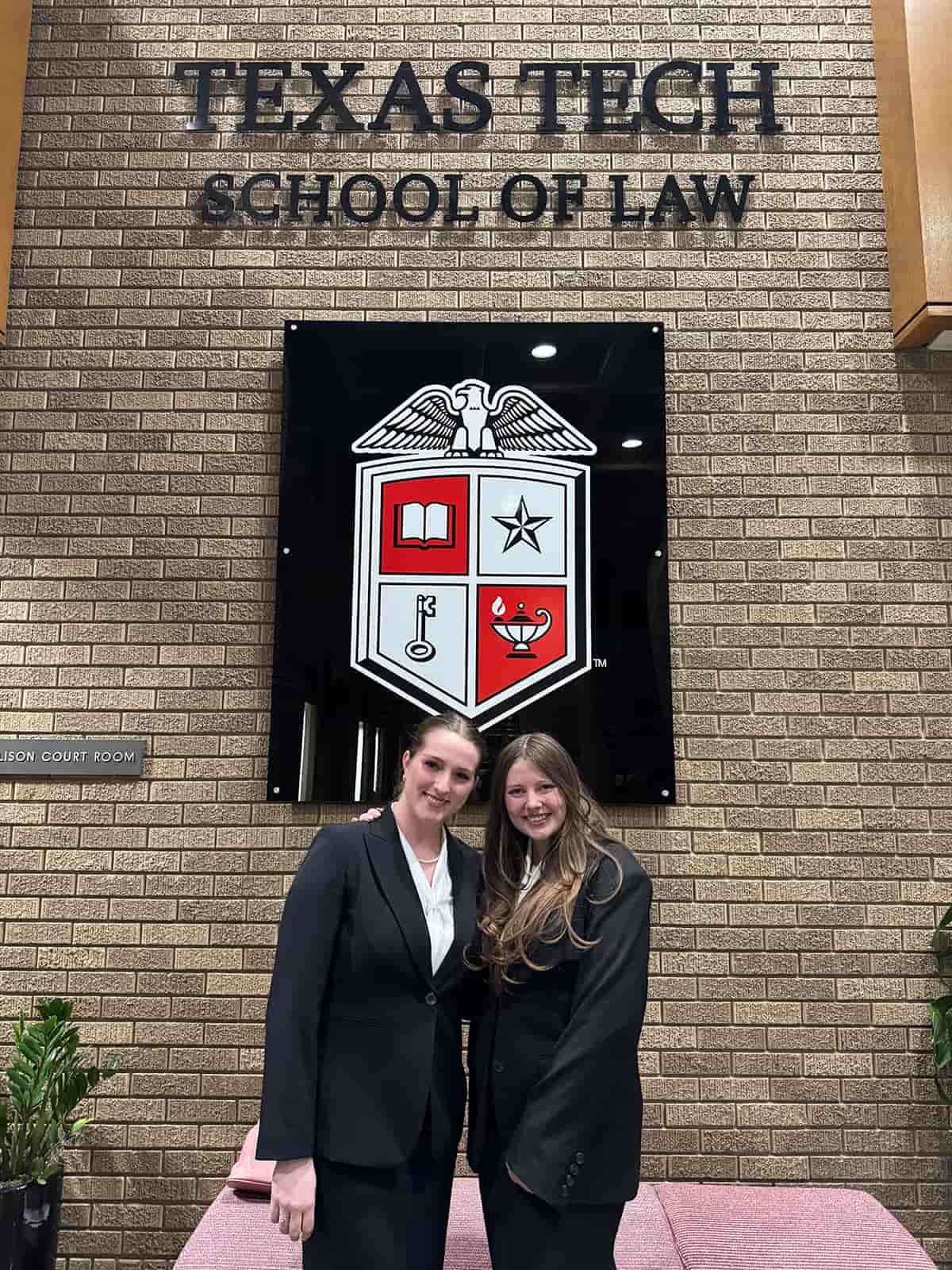
DENTON (UNT), Texas — For members of the University of North Texas Moot Court team, the experience is more than just an extracurricular activity — it’s
an opportunity to develop professional and interpersonal skills.
UNT Moot Court, founded in 2000, is a student-led team that argues legal issues based on real court
cases. Since then, the team has reached national-level competitions nearly every year.
During the 2024–25 season, three UNT teams advanced beyond regionals, and the program
ranked eighth in the nation for oral advocacy by the American Moot Court Association
(AMCA).
Team coach Adam Whitten, former trial lawyer and lecturer of business law in the G. Brint Ryan College of Business, attributed much of that success to the team’s strong student-driven culture.
“UNT Moot Court is very student-focused and student-run,” Whitten said. “They have
the freedom to grow their skills independently. Our goal is for our students to push
themselves, enjoy the process and gain a real understanding of what it’s like to practice
law.”
Each May, the AMCA releases a new legal case and real court decisions that all teams
must use during the upcoming season. Although the case itself is hypothetical, it’s
based on actual legal issues, and students must base their arguments only on the materials
provided — no outside sources are allowed.
Over the summer, UNT Moot Court’s incoming president recruits an executive board to
help manage the team and selects new members to form pairs for the competition. Team
members spend the summer writing arguments and participating in weekly practice sessions,
known as “runs,” where they present their arguments and get feedback. By the start
of the Fall semester, the team is gearing up for competition, with each member dedicating
at least three to four hours per week to practice.
Current UNT Moot Court president Austin Boyd said the organization is indispensable
for any student pursuing a legal career.
“You have to learn to manage your time, you have to know how to speak to a room and
you have to argue confidently and effectively,” said Boyd, a junior double-majoring
in political science and business economics.
At competitions, each two-student team competes in up to seven rounds over two days.
Students must be ready to argue both sides of the case and respond to questions from
a panel of judges. Teams that perform well at regional competitions move on to pre-nationals,
and top teams from there advance to the national level.
This year, Boyd hopes to see more UNT Moot Court participants advance beyond regionals:
at least five teams at pre-nationals, and at least two at nationals. Boyd said having
arguments and talking points memorized is key to a successful competition.
“You can read from your notes, but being fully prepared will get you more points from
your judges. We want our whole team to be off-book,” he said.
Kimi King, professor in the Department of Political Science and UNT Moot Court founder, said requiring students to argue both sides of complex
legal issues in the lower courts helps them develop advocacy skills.
“We argue challenging topics. Students have to get outside their comfort zone and think about the core policy issues at stake,” King said. “Those who can do that are the ones who are successful at the national level.”

That confidence helped Quinn Kelly (’25) and Ashlyn Dodson (’24), outgoing president
and vice president of UNT Moot Court, advance to the final round of the 2024-25 national
tournament. Out of 500 teams from 30 states, the pair placed in the top 16. Dodson
and Kelly also earned first- and second- speaker award distinctions at the regional
competition.
Kelly, who majored in political science and earned a legal studies certificate, said
moot court helped her learn to “think critically with a capital T.”
“Moot court teaches you to communicate diplomatically. It’s one of the most translatable
organizations you can join,” she said. “No matter what career you choose, you’ll need
to communicate with people clearly and succinctly.”
Dodson, a political science major who minored in legal studies in business, echoed
Kelly’s sentiment. She said the organization gave her the confidence to apply to Baylor
Law School, where she will begin studying in Fall 2025.
“Moot court got me into spaces where I had law students and lawyers telling me, ‘You’re
good at this,’” Dodson said. “When you have professionals telling you that you have
those abilities, it’s really validating.”